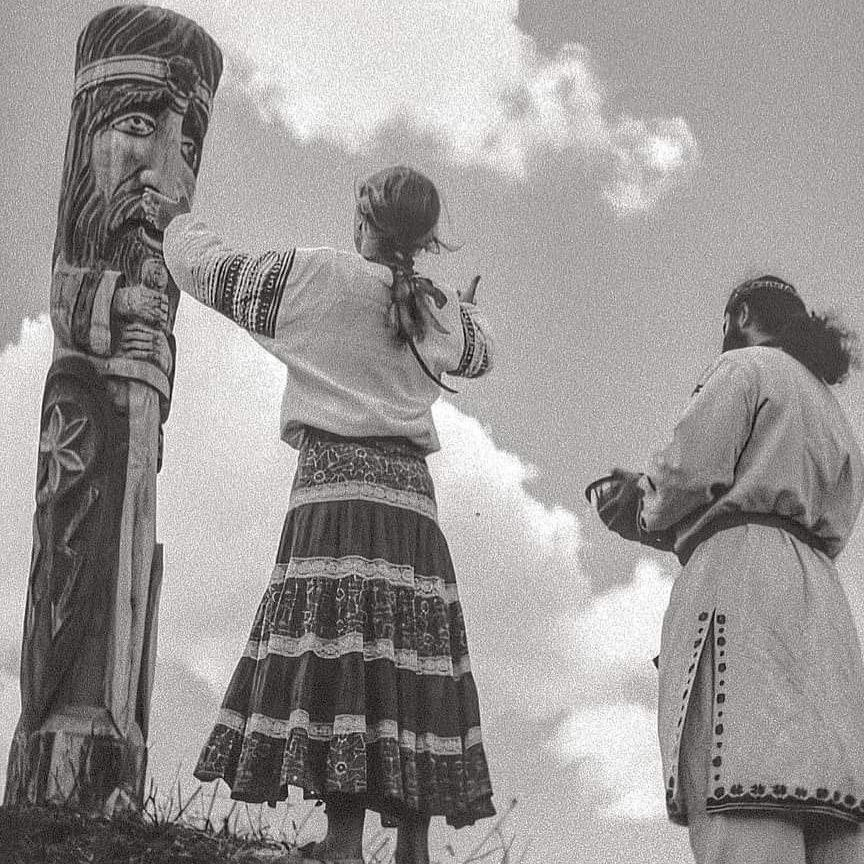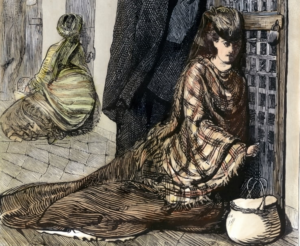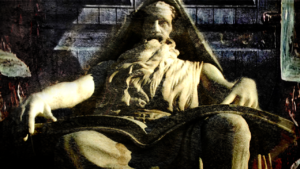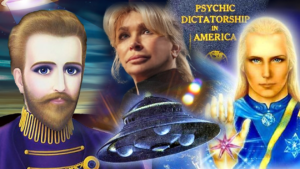You’re the Ancestor Now

This piece is addressed to a perhaps rather niche crew, but it’s large enough to warrant discussion and I believe the topics touched on are connected to much wider movements that are relevant to everyone.
The ideas of ancestry and how we should relate to it have become a hot topic in some circles in recent years. This is one of an amusingly high number of places where online reactionary discourse and witchy crystal girl discourse overlap, as well as being a place where white folkists and some strains of black nationalist converge with each other. In this latter case, the worst expressions emerge as mutual animosity and the resurrection of blood-grudges, while better expressions reach a common understanding that modernity, especially its materialist and/or abrahamist undertones, has damaged all parties involved.
A recourse to the ancestors is not difficult to understand in today’s world. Postmodernity erodes the senses of identity, belonging, and direction all at once. Many people have already made the transition from deriving these things from an organic social unit like a tribe or family to deriving them from synthetic units like brands, genres, or ideologies. However, a certain type of sentimental or stubborn personality resents this change and attempts to recover what they perceive as the old order.
I think this impulse is positive, but issues arise regarding interpretation and priority. We are already in the belly of the beast. The old world, at least the old west, is already extinct, and most of our tools and hermeneutics for trying to examine it have origins in the new world and therefore have large blind spots. The most oppressive of these blind spots are ones made possible by materialism.
Materialist hermeneutics show their fangs most prominently in politically or ideologically charged ways of interpreting ancestry. By this I mean specifically “Vargism”, Nazism, or Folkism, which usually approach the Ancestors as stewards or hypostases of a genetic code, with the genes being what actually matters in their eyes. This mythologization of something material is especially appealing to people who are not quite capable yet of theological belief but who still feel a strong sentimental pull to an ethos that offers exclusivity and direction. There is, inadvertently, a vulgar derision of the ancestors’ own explicitly theological and spiritual beliefs in these doctrines. This is sometimes half-assedly excused by claiming that the ancestors did think this way, were intentionally encoding biological ideology in their fables, and that “degenerate,” “eastern” superstition wrongly interpreted them as spiritual.
This general blueprint of using ancestral language or aesthetics to legitimize a modernist fetish-based ideology is basically the dominant modus operandi of current discourse about ancestry. It is also indulged by liberal spiritualists, from whom I have seen very hot takes like “White witches need to confront their racist great-grandparents in the astral.” Although not materialist, this is still an intrusion of modernist hermeneutics.
The modern condition also intrudes on our ability to understand ancestry in more subtle ways. For example – do you know the names, birthdays, and general biographies of all 8 of your great-grandparents? It’s entirely possible that you do, but if that’s the case it’s somewhat less likely that you are engaging with these problems of identity and belonging in the first place. There is a tendency of ancestry discourse to skip over these close generations and vault right into deep time, which I think is very appealing to people specifically because of the ease with which one’s own ideas and biases can be projected onto an incomplete image liable to idealization. For sure, in some small measure each of us is Norman, Teuton, and even “Bell Beaker” or “Corded Ware,” but these layers of ourselves are buried far beneath the parts of us that consist of our living parents and grandparents and their simple American-ness, British-ness or whatever other nationality marks them.
I think it’s undeniable that in many cases a turn towards an idealized historic identity is symptomatic of an alienation from these immediate parts of ourselves, a dissatisfaction with a current culture that is failing to provide belonging and direction. Remote ancestors may be sought as surrogates for failed relationships with recent ones. This may be a fine first step, but it has to be followed up with rigorous examination and discipline in order to avoid devolving into using the image of the Ancestor as a puppet for projecting and justifying personal pathologies.
Firstly, I think it must be asked what the purpose of engaging with the ancestors is. Are we seeking understanding, belonging, continuity? Well, understanding, belonging, and continuity of what? Of a social unit, the family or clan? And what makes that unit of interest to us? Its relationship to our own selves, of course. And thus the question of ancestry is one of self-knowledge. It will therefore be impeded by all the same sorts of pathologies that impede self-knowledge in any other respect.
Perhaps we wrongly understand the self to be a biological, material, contingent thing – we would therefore engage with our ancestry only biologically, materially, contingently. But if this is mistaken, then we’ve already introduced a self-inflicted obstacle to our original goals of understanding, belonging, and continuity. By misunderstanding what our ancestors are and do, we make belonging and having continuity with them harder. For example, a biological conception makes our relationship to them contingent and vulnerable. It induces us to think minor drifts in DNA composition can interrupt our connection, since the connection was only based on genetic proximity in the first place. This sort of scarcity mindset is obviously ripe ground for exterminationism or total isolationism to take hold.
So how would we approach a better understanding of the self and its relationship to the ancestors? As with all things, proper understanding and right action hinges on having an accurate cosmological model. For this discussion, that means having an accurate assessment of what an ancestor is in the wider context of the procession, maintenance, and reversion of the cosmos, and how they relate to ourselves and to the Gods within that context. Firstly, we have to recognize the self as a unity which nonetheless “possesses” or is present to a multitude and to multiple composites; for example, the Psyche as Logos, Thumos, and Epithumetikon and the body as breath, flesh, blood, etc. All of these things owe themselves to multiple causes and belong to multiple series, and among these causes and series we can find our ancestors; In Aristotelian terms, our parents supply the efficient and formal causes of our bodies and personae, and their parents did the same for them. The earth furnishes the material cause that is shaped and metabolized, and the family line furnishes our bodies with a final or teleological cause, the health, happiness, and survival of that line.
This is all vital, but we have not gone nearly far enough. We have accounted for the immediate causes of the body’s shape and use, but what about the original formal and final causes of the wider human race or of the whole archetypal human being? We have not approached his psychic or noetic causes or even the faculties those causes act upon. For these we must go beyond the ancestors, and this is the leap that much discourse about ancestry fails to even realize must be made. That’s too involved a process to walk through in the limited space here, but the end product is something like this: Ultimately all things derive all of their causes (except, arguably, their material causes) from the Gods through layered processes of abiding in Them, proceeding from Them, and reverting to Them. Our ancestors, as human souls, must be considered through the lens of these processes.
While we are their descendants in respect to certain causes, we are more like siblings in regards to our ultimate causes. Love and respect for our ancestors is non-negotiable, but adherence to their specific cultural forms or lifeways doesn’t necessarily follow. They were capable of making mistakes, and we are responsible for the course-correction of our lineages. Even someone who advocates “retvrn” would have to admit this, since it was our immediate predecessors who fell from “trad eden” in the first place. We cannot forget that while we do owe them gratitude and hospitality, it’s also unavoidable that our means of attaining identity, belonging, and continuity will have to be different from their methods on some important points. We are in unprecedented territory culturally and technologically. Judging things according to their historicity or how “lindy” they are can go a long way to helping us avoid repeating difficult processes of trial and error that were already settled by our precursors, but in the end solutions will be found not by imitating our ancestors’ outward expressions but by grasping for ourselves the eternal principles according to which they themselves also prospered or failed. This is what it would truly mean for us to fulfill our shared Final Cause with them, and this would bring more honor to them than any amount of dress-up or ceremony could.
However, yes, those principles do point us towards a proper exercise of ancestor worship as an integral part of a religious practice that harmonizes self, society, nature, and Godhead. Just as we have obligations of hospitality as guests in the domains of the Gods and the nature-genii, we also have obligations to our ancestors as occupants of the “home” that they built for us – the social order and culture of our society. For example, the Romans conceptualized the heart of their civilization, the actual content of its character, to be the “Mos Maiorum” – “Custom of the Elders.” This custom defined what a Roman is by defining what a Roman does, and it sustained itself by passage directly from parents to children in a theoretically unbroken chain from the founding of the city. Roman society existed within the grounds of its custom just as much as it existed within the walls of its cities. So too with us, even if the bounds are lax enough that they practically only pertain to our language anymore.
But customs, just like genes, are not the be-all end-all of existence. They can and must be measured against something greater than themselves. If we accept the Platonic proposition that a human social order is a fractally magnified human individual, then just as we can judge a man by how free, just, and happy he is, we can judge a social order by how free, just, and happy its people are. And if we can use that as our measurement, we can also use it as our goalpost in the formation of social orders that will be up to the challenges of a postmodern world – social orders of which we will be the ancestors, and which honor prior ancestors by honoring the substance of their mission even if some trappings fall away.
Before we’re capable of wielding that yardstick on an interpersonal and intergenerational scale, though, we have to learn to wield it on an individual scale, applying it in our own lives. Towards this end, take up philosophy as far as you are able. Seek the purification of the self and the practice of justice, strength, and beauty. Draw the multitude of composites that you are scattered throughout into the one-pointed union that they are meant to be. Withdraw yourself from the vampiric attachments of a dead world, and cease looking for your identity in its ruins. Sure, maybe it could be a bit better to derive self-worth from a national identity than from a sexual one, but if your reasoning isn’t grounded in the divine and your true intentions not oriented towards it, you are still on the same playing field and you are still dissolving. In 1000 years there will be no America, Russia, or China in any contemporarily intelligible form, but there will still be Gods and there will still be children of your children living in their world. The only patrimony you can actually guarantee them that far into the future is your own presence as an Ancestor. It will be up to them whether they seek your help, but you can still set a good example – an example not just of honoring and valuing the ancestors of the past, but of honoring the ancestors of the future by cultivating perfection in yourself and your immediate circle.











